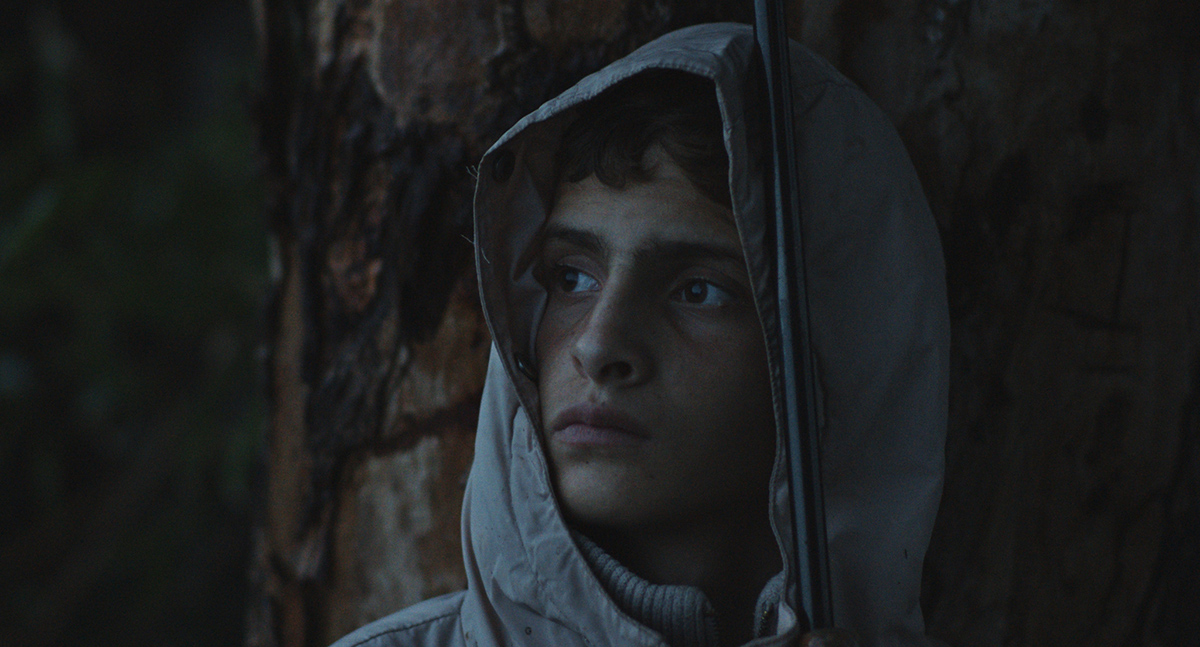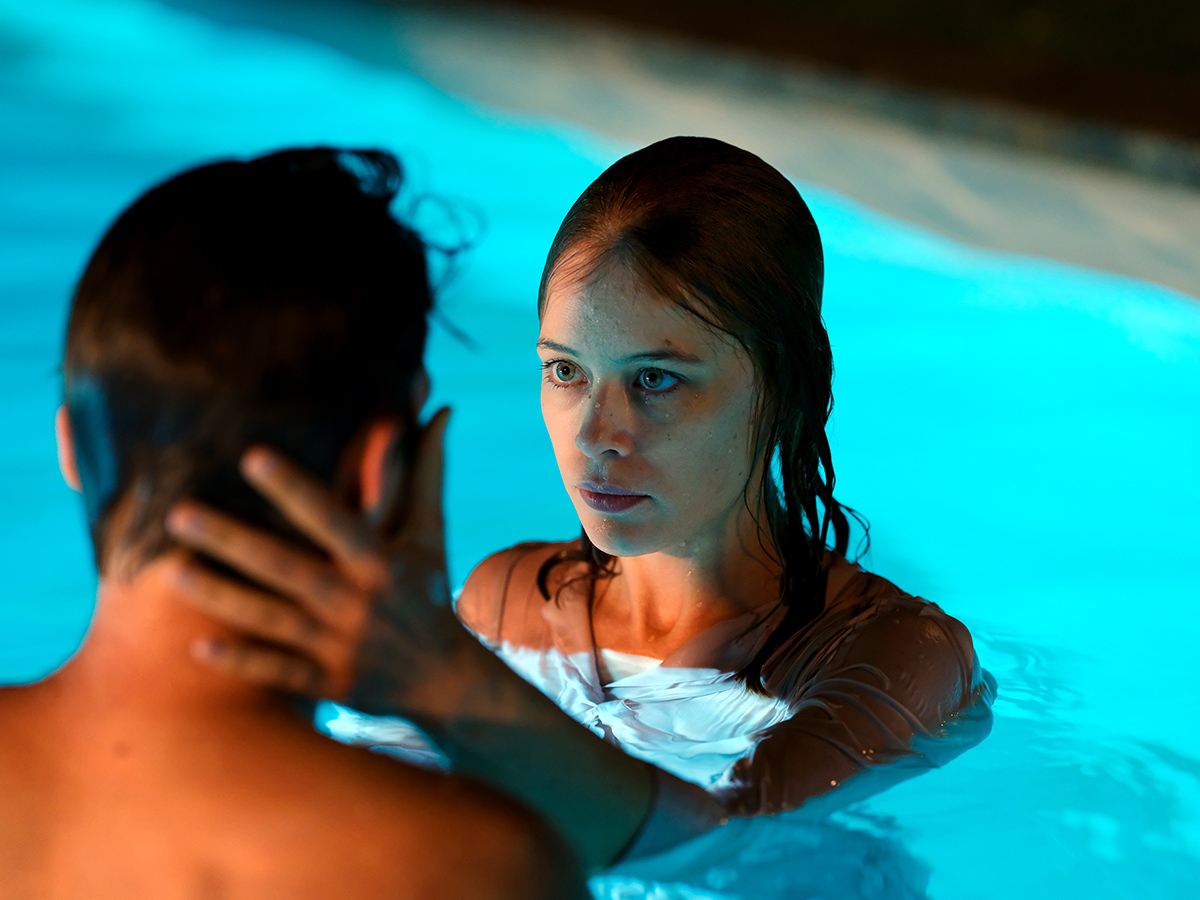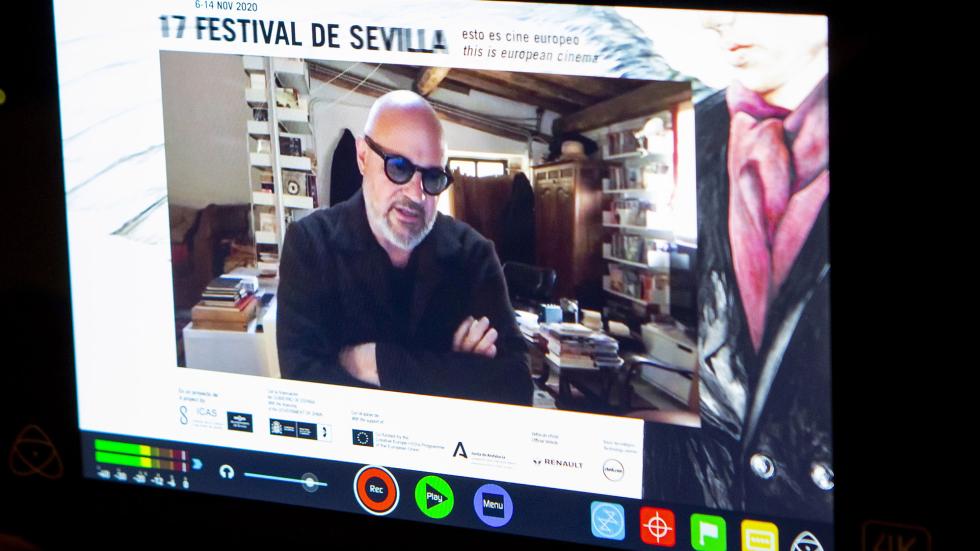Gianfranco Rosi has presented 'Notturno', a documentary part of the Official Section about the daily life in a Middle East besieged by multiple conflicts
It also competes for the Golden Giraldillo 'Undine', by Christian Petzold, a love story with fantastic tints inspired by Germanic mythology, opening screening of the Seville European Film Festival
In the first of the press conferences of this edition of the Seville Festival, which can be followed through the SEFF Channel, Gianfranco Rosi (Asmara, 1963) presented the film Notturno, which is part of the Official Section. A project that was conceived over a period of three years, when the Italian director began to travel around the Middle East, without even carrying a camera: "In a notebook I was collecting what I call 'the absolutes', places of the landscape and territories of the mind that constitute a psychogeographical element", explained the filmmaker.
The film focuses on daily life on the borders of Iraq, Kurdistan, Syria and Lebanon, areas that, according to Rosi, "separate life from hell, from despair, destruction and silence. For me, being there meant bearing witness to memory. That's what this film is about, finding a moment that is so profound that it becomes the synthesis of life, and in that moment I must forget what happens before and after. They are like musical notes and the silences that remain between them".
.

Rosi refers to a kind of fragmented chronology that emerges from these portraits, isolated but connected, and which she has assembled in the film like a puzzle. "At the end of the process, they have given birth to a wonderful story. I wanted to show the universality of pain, it's the result of war and it doesn't matter if it's about a mother in Kurdistan, Syria or Lebanon". Part of that fragmentation also responds to the fact that "time in those countries is suspended, everyone is waiting for an invisible enemy, like ISIS". In fact, said the filmmaker, one of the biggest difficulties of the shooting was the continuous changes of location: "Once you are two or three days in a place, you become a military target.
Master of non-fiction, Rosi -who already won the Silver Giraldillo in 2013 with the surprising Sacro GRA- has also delved into the character of this new fictional documentary, but in which nothing is written. The key, he said, lies in the rigour of the cinematographic language, always present in this film. "I wanted to bring it to the authority of the documentary, but always from a search for truth and through cinematographic formalism. For me the important thing is not the difference between fiction and documentary, but between truth and lie. I didn't want to create a detachment from the story, however, I don't agree with verism, we need distance".
Undine, beyond the male desire projection
The film Undine opened today the 17th edition of the Seville Film Festival. This is the latest work from Christian Petzold (Hilden, 1960), with which he will also compete in the Official Section. About the origin of this project, he explained that it goes back to about 15 years ago, when he started working with the actress Nina Hoss and in the conversations he had with her about "the mystery of art". In one of them they talked about the Germanic myth of Ondina, a water nymph who takes revenge on her beloved after discovering his betrayal: "Her figure is actually a projection of male desire", said Petzold, who has since become increasingly interested in everything related to this story, which has known various versions throughout the history of literature.
Later he found what would be his point of view, the one he wanted to imprint on this story, by reading Ingeborg Bachmann's book, "where she really thought and reflected". Yet it was only through his relationship with actress, Paula Beer, that he decided to make this film. It happened during the shooting of another film, In Transit (2018): "She told me she was a little angry, because the book on which that story was based defined all the male characters very well, but not the woman she was playing. At that moment, Petzold remembered the conversation with Hoss and the story of Undine, which was somehow connected to that other film and which, not surprisingly, would end up starring Paula Beer and her fellow cast member Franz Rogowski again.

The resulting film is based on this folklore and brings it to contemporary Berlin, giving it a halo of classic romanticism. "I wanted to talk about the past from the present", said the German director. "I love fairy tales, songs and oral tradition. Undine is a romantic character that emerged in 19th century Germany, when it was becoming an industrial nation where everything was going to be centered on money. Our capitalist reality today, originating from there, tells us that there is no evolution or history, but then, where is that beauty and those narratives?
In this sense, Petzold has made a political reading of his film, apparently linked to the fantasy genre. "I have the feeling that the system is in crisis. The Undine of today is already independent of male subjectivity and has found her identity," he said. Thus, for him it is a "very modern fairy tale character", referring to the work of Friedrich de la Motte Fouqué from which this story originates. However, the director wanted to disassociate it from visions such as those of Disney's Little Mermaid, since in reality Undine's "is a story about sexuality and erotic desire, something that is in Andersen's tale".



